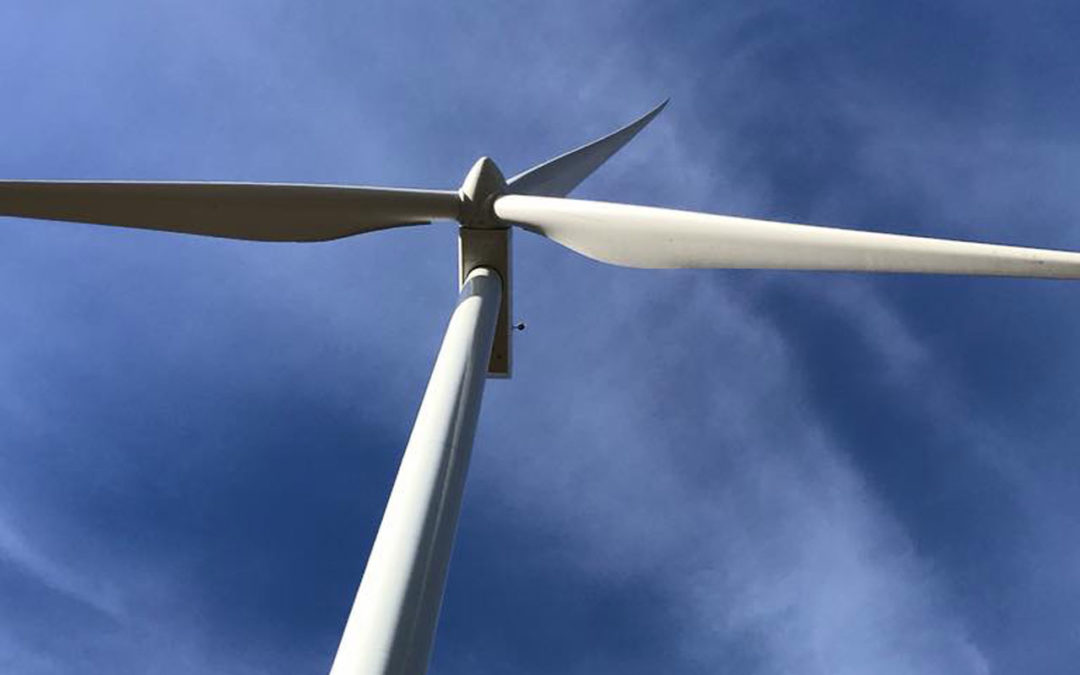In the first-ever test of the appeal process set forth in Wisconsin’s Wind Siting Rule (PSC 128), the Public Service Commission (PSC) reviewed and upheld Green County’s approval last fall of a 24-turbine, 65-megawatt (MW) wind project slated for development there. Following the county’s original decision, local wind farm opponents petitioned the PSC to invalidate the project’s permit, contending that the developer’s application was incomplete.
On June 11, the PSC denied the petition on a 3-0 vote, and in so doing removed the last remaining legal obstacle from the project’s path. As it stands today, the Sugar River wind farm is fully compliant with the standards set forth in the statewide rule relating to public health and safety, and may now proceed to construction.
Advanced by EDF Renewables, a nationally prominent renewable energy producer, Sugar River is capable of generating enough electricity to equal the consumption of 20,000 Wisconsin households. When operational, Sugar River will also yield about $260,000 in annual revenues, with nearly $152,000 going to Green County and more than $108,000 to the Town of Jefferson. Before ground can be broken, however, EDF will need to either sign a power purchase agreement with an off-taker or agree to sell the wind farm to an electric provider when construction is complete.
Sugar River was one of the first two wind energy proposals in 2019 to go through the local government review process specified in PSC 128. The other proposed wind farm, the 99 MW Red Barn project in Grant County, secured a conditional use permit in July 2019. No appeal of Grant County’s decision was filed. Like Sugar River, Red Barn is expecting to begin operation in the second half of 2021, assuming a partnership has been forged with an electric provider.
Sugar River provided the first significant test of PSC 128 after the rule narrowly survived a repeal vote during the 2011-2012 legislative session. The rule establishes a mechanism whereby a citizen group or a development company may challenge a local government decision on a proposed wind farm. Under this appeal process, the PSC’s role is to ascertain whether the local government adhered to all the standards and procedures in rendering a decision on a wind farm proposal.
In the case of Sugar River, the PSC agreed to take up the appeal filed by No Green County Wind in October 2019. Before rendering its decision, the PSC invited interested parties to submit comments on the matter. In its comments, RENEW expressed its support for the Sugar River project, as well as the regulatory framework that allowed the project to be given a fair hearing at every step of its permitting journey. The PSC plans to issue a written decision in July.
The approvals of Sugar River and Red Barn signal the end of a protracted lull in wind development activity lasting from 2011 to 2017. Between an adverse political environment and a glut of generating capacity, wind energy development stalled in Wisconsin. During the dry spell here, developers flocked to greener pastures in neighboring states. The door reopened slightly when Dairyland Power Cooperative agreed to purchase electricity generated from Quilt Block Wind Farm, which started operating in November 2017.
Though local opposition to wind development remains very much alive today, the experience with Sugar River attests to the strength and durability of Wisconsin’s Wind Siting Rule, which foretokens brighter days for the wind power industry here.
To learn more about the Sugar River Wind Farm, visit these previous blog posts.
PSC affirms local approval of Sugar River Wind Farm
Local Residents Discuss Wind Energy in Wisconsin
A Scientific Look into Wind Power and Human Health

